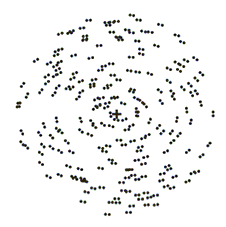Categorical decisions and learning in the ageing brain.
 Interactions in our complex environments entail prompt decisions for successful actions in novel situations. We examine the links between brain structure and function that mediate the ability of older adults to interpret, learn and categorise novel sensory experiences. Despite significant progress in understanding how the human brain ages at the anatomical and cellular levels, much less is known about the relationship between structural and neural changes that underlie the ageing of cognitive abilities and determine an individuals functional, rather than chronological, age. A core challenge in human cognitive ageing is to understand the mechanisms that lead to rapid cognitive decline in some older adults while others maintain high levels of cognitive performance. This study aims to: a) combine behavioural methods with multimodal imaging techniques (structural MRI, functional MRI, EEG) to relate cognitive performance in ageing to changes in brain morphometry and function, b) develop and validate novel analysis methods for behavioural and imaging data based on advanced mathematical techniques (i.e. machine learning) that provide powerful tools for studying individual variability in cognitive processes across participants. Our findings will advance our understanding of life-long learning and cortical plasticity and have implications for quality of life, early diagnosis and intervention in normal and pathological ageing.
Interactions in our complex environments entail prompt decisions for successful actions in novel situations. We examine the links between brain structure and function that mediate the ability of older adults to interpret, learn and categorise novel sensory experiences. Despite significant progress in understanding how the human brain ages at the anatomical and cellular levels, much less is known about the relationship between structural and neural changes that underlie the ageing of cognitive abilities and determine an individuals functional, rather than chronological, age. A core challenge in human cognitive ageing is to understand the mechanisms that lead to rapid cognitive decline in some older adults while others maintain high levels of cognitive performance. This study aims to: a) combine behavioural methods with multimodal imaging techniques (structural MRI, functional MRI, EEG) to relate cognitive performance in ageing to changes in brain morphometry and function, b) develop and validate novel analysis methods for behavioural and imaging data based on advanced mathematical techniques (i.e. machine learning) that provide powerful tools for studying individual variability in cognitive processes across participants. Our findings will advance our understanding of life-long learning and cortical plasticity and have implications for quality of life, early diagnosis and intervention in normal and pathological ageing.
